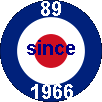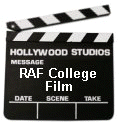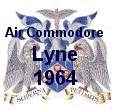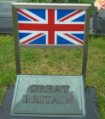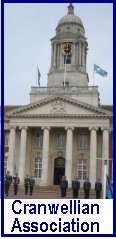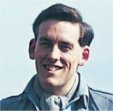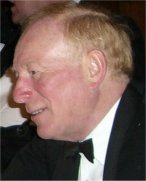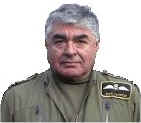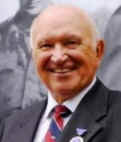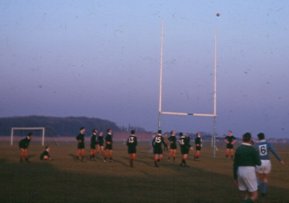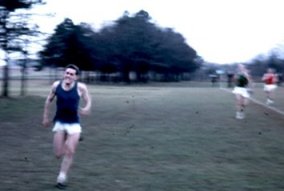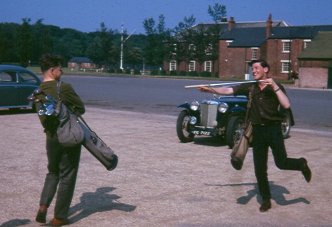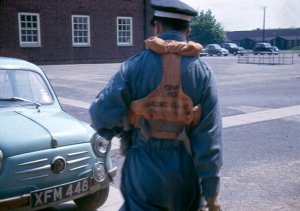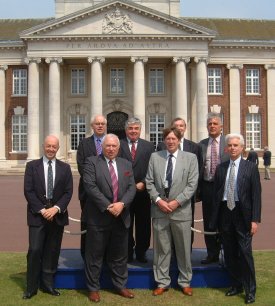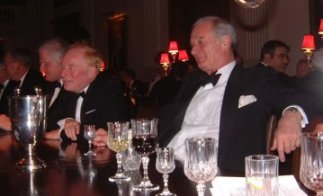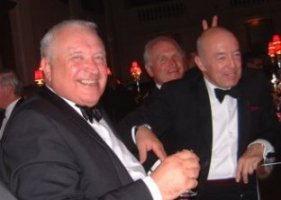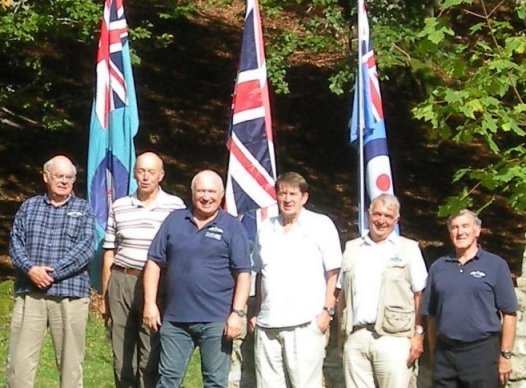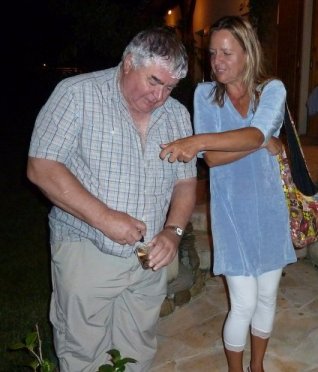|
Email your photos & stories |
|
For the Korean War site by Simon Coy
|
Cranwell
LINKS
89C
Royal Air Force College
September 1963
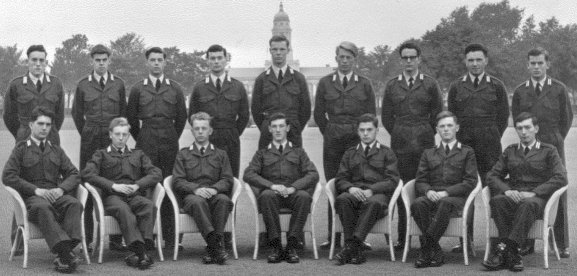
Rear - Left to Right - Pete Thompson, JC Newland, Chris Saunby, Keith Jackson, Dave Donnelly
Dave Harlow, Duncan Swift, Derek North, Paul Cooper
Front - Left to Right - Les Quigley, Dave Foulger, Crag Carter, Brian Synott, Dick Shuster,
John Liddell, John Grimer
Can't understand why we weren't smiling - were we under orders from "Noddy"?
And why is the front row hanging on to their essentials??
Departed but not forgotten
|
Pete Thompson Killed in an aircraft accident at Tengah on 12th September 1968 flying a Lightning with 74 Squadron |
Paul Cooper Killed
in an aircraft accident at Wattisham on 16th February 1972
flying a Lightning with 29 Squadron. |
Dave Foulger, MBE Died of Cancer in 2009
|
|
Dick Shuster, AFC Died July 2019 of a heart attack whilst walking his dog near RAF Linton-on-Ouse |
Derek North, DL Died of heart failure Oct 2020 |
Dave Donnelly Died of a stroke in february 2024 |
Some "C" Squadron activities during the early days
(Photos courtesy of Derek North)
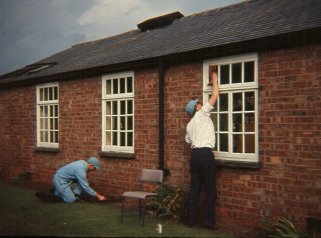 |
Left - "The South Brick Lines" - Chris Saunby - gardening? and Duncan Swift - window cleaning prior to a C.O's inspection! Note the hats - marking the last "gentleman" Entry at Cranwell - 89 being the last to have to wear one in civvies! Below - Some of our sporting activities Top Left - Rugby - or is it ball watching? Top Right - Knocker Cross Country - Pete Thompson showing his prowess! Bottom Left - Practising Ballet Dancing - Dick Shuster & Snotty don golf clubs so that no one will spot them practising their ballet! Bottom Right - Posing? - Quiggers in full flying kit heading for of his "QRA vehicle" - a very dodgy Fiat 600! (Ron Forder & Quiggers slept/froze in that little car one night when it broke down - and to add to the "pleasure" were put on a charge for being AWOL for 7 hours!!) |
|
|
|
|
|
|
AWARD PROMULGATED IN THE LONDON GAZETTE
DATE 2nd DECEMBER 1969
AIR FORCE CROSS
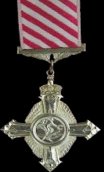
Flight
Lieutenant Richard Charles SHUSTER (608551),
Royal
Air Force
On 2nd August 1969 Flight Lieutenant Shuster was the
pilot of a Canberra aircraft of No 81 Squadron, engaged on a routine
training flight from Darwin Australia. He
started a descent from 29,000 feet approximately 400 miles south of Darwin and
almost immediately there was a loud bang and the cockpit filled with smoke.
Flight Lieutenant Shuster found that he had no elevator control and
correctly diagnosed that the explosive unit, which normally severs the elevator
control rod during an ejection sequence, had operated.
He ordered the navigator to his ejector seat,
selected emergency oxygen and brought the aircraft under control using his
tailplane incidence trim switch. He
then flew the aircraft towards Darwin, which was the nearest suitable airfield.
Meanwhile the navigator examined Flight Lieutenant Shuster's ejection seat and
confirmed that the sears and firing bandies were intact and had not been the
cause of the control severance. During
the descent into Darwin Flight Lieutenant Shuster carried out checks to
determine how the aircraft handled at low speed with the undercarriage down.
He discovered that there was slow response to the trim control, but by judicious use
of engine power and trim he could hold reasonably accurate speeds.
Adjustments to the rate of descent could be achieved by airbrake
selections, but he decided against the use of flaps since he had insufficient
control to overcome the marked change of trim in the Canberra aircraft when the
flaps are lowered. A flapless
landing was therefore inevitable. The weather at Darwin was good but the wind
was gusting to 20 knots on the runway in use, which was not equipped with a
barrier. There was a barrier
on the other end of the runway, but to take
advantage of this Flight Lieutenant Shuster would have had to accept a tail-wind
component on landing. This
could have complicated the landing problem as no flap was available. Flight
Lieutenant Shuster therefore decided to land into wind and deny himself the
possible use of the barrier. Before
starting a long gradual descent into Darwin Flight Lieutenant Shuster ordered
the escape hatch to be jettisoned into the sea so that the navigator could eject
quickly if control of the aircraft were lost.
The speed and the correct rate of descent were maintained by holding the
power constant, making slight trim adjustments, and by constantly cycling the
airbrakes. The last part of
the descent had to be made at higher speed than normal because of the crudeness
of control; thus the final problem
was the possibility of the aircraft ballooning uncontrollably into the air after
touchdown. Flight Lieutenant
Shuster was fully aware of this and as he trimmed to level out over the runway
he throttled back, selected full air brake and opened his flare doors to destroy
as much lift as possible, at the same time being ready to order his navigator to
eject. As the result of his skill, forethought and perfect judgment the landing
was made with no damage to the aircraft.
The incident reflects credit on both crew members but particularly on the
pilot and captain, Flight Lieutenant Shuster.
He is relatively inexperienced, yet he made a very cool assessment of his
problem and took firm control of his disabled aircraft which was particularly
difficult to fly. He would have been completely justified in abandoning an aircraft in such a
dangerous state 400 miles from a suitable airfield. It is to his infinite credit that he did not do 30 but
nursed the disabled aircraft for an hour and landed it undamaged.
Because of his courage, determination and skill the reason why the
explosive unit. had operated was quickly discovered and precautionary checks
were able to be made on all Canberra aircraft.
Had the aircraft crashed or been abandoned it is doubtful whether the
fault could ever have been positively identified.
This young pilot, at considerable personal risk saved an expensive
aircraft and made a valuable contribution to flight safety.
He displayed gallantry, determination and coolness of the highest order
in the face of danger. He demonstrated high ability, and a marked sense of
responsibility in an extreme situation which reflects the greatest credit upon
himself and is in keeping with the highest traditions of the Royal Air Force.
"C" Squadron Survivors - RAF College Cranwell 2003
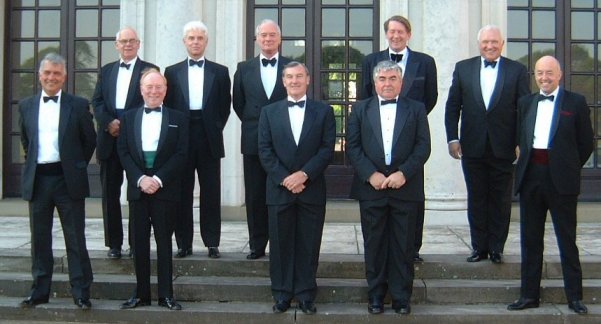
Rear - Left to Right - JC Newland, Chris Saunby, Keith Jackson, Dave Harlow, Derek North
Front - Left to Right - Les Quigley, Dave Foulger, Brian Synott, Dick Shuster, Ian Robertson
(These are the same positions we were in on our original photograph above - the gaps represent the missing chaps .......
Pete Thompson, & Paul Cooper (Either end at the rear) were both sadly both killed in flying accidents,
Dave Donnelly (middle rear), Duncan Swift (3rd in from right rear), Crag Carter (3rd from left front), John Liddell & John Grimer (1st & 2nd right front) - didn't make the reunion for other reasons.
[John Grimer left us very early (4 days?) and is replaced by Ian Robertson who joined us in 1964]
Around the College 2003
|
Above - Dick Shuster, Chris Saunby, Brian Synott, Ian Robertson & Derek North Right - Ian Robertson, JC Newland, Derek North, Dick Shuster, Dave Harlow, Brian Synott (hiding), Les Quigley, Chris Saunby |
|
|
|
|
|
Paddy Pyper, Dave Foulger & Keith Jackson looking alcoholically relaxed |
Derek North, Barry Chalkley & Ian Robertson - the hair restorers doing funny things Ian! ..... |
............... No its not, it's that Barry Chalkley from "A" Squadron trying to make a monkey (or is it a rabbit) out of his "C" Squadron colleague.
Or are they field testing that new " Vi bugra" pill ? .....
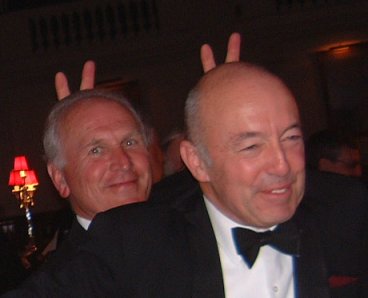
We don't know what Bunny Chalkley's up to? But he's obviously enjoying it!
Bunny Robertson, however, looks to be straining a bit!!!
Still your OK now chaps -it's not against QR's any more!
89C Reunion 2005
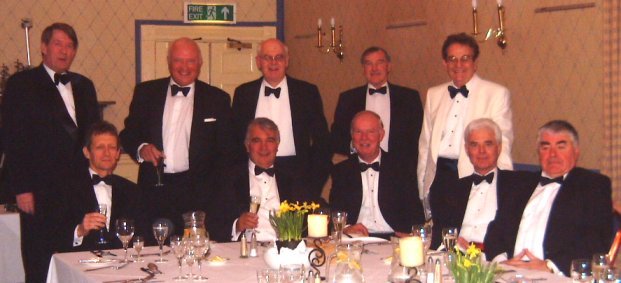
Back - left to right - Dave Harlow, Derek North, JC Newland, Brian Synott, Duncan Swift
Front - Jerry Pook ("A" guest), Les Quigley, Dave Donnelly, Chris Saunby, Dick Shuster
89C Reunion 2011
|
JC Newland, Ian Robertson, Derek North, Dave Harlow, Les Quigley, Brian Synott at the graves of an RAF crew 4.500 feet up in the French Pyrennees |
Dick Shuster couldn't make it up the mountain because of his gout! However, he had kept the local ladies entertained by providing wine from his stomach! |


